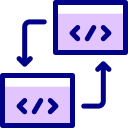Planning, Estimation, and Buffers That Actually Work
Break features into vertical slices small enough to demo. Define done with tests, docs, and review. Estimation improves when work is atomic. Share a before-and-after where splitting a task reduced surprises and improved your time budget.
Planning, Estimation, and Buffers That Actually Work
Hofstadter’s Law says projects take longer than you expect, even when you account for Hofstadter’s Law. Add buffer explicitly and track burn. What percentage buffer feels honest for you, and how do you defend it?









